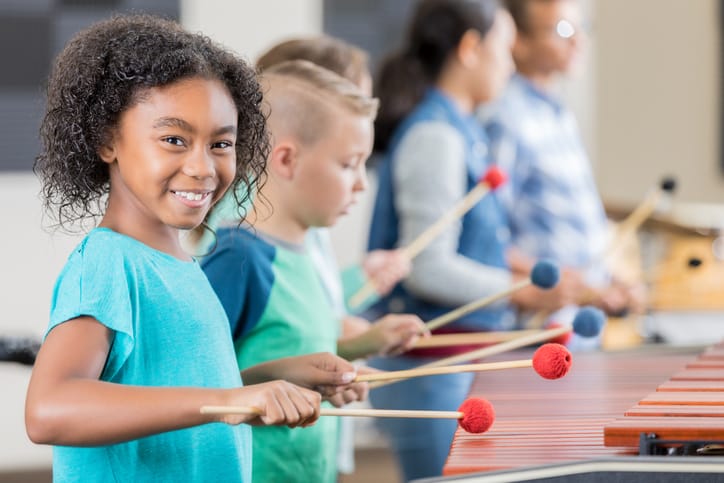How To Ace Your Subject Leader Role In Music
Written by Elizabeth Stafford
Published on 30th August 2022
Last Updated: 17th July 2024
Written by Elizabeth Stafford
Published on 30th August 2022
Last Updated: 17th July 2024

The life of a primary music subject leader can be a lonely one. Maybe you’re the only ‘musical’ person in your school, or maybe you don’t consider yourself musical at all but have ended up in charge of the music curriculum anyway! It can be difficult to know where to find support and advice, but don’t worry; in this blog, Kapow Primary has you covered.
The good news is that you don’t need to be a musical genius to be a music subject leader. In fact, in some ways, it can help if you’re not. Your role is all about helping your colleagues to plan, teach and assess music better, so if you feel that you lack experience in those areas, you can actually turn that to your advantage. After all, you know first-hand what non-specialist teachers struggle with when teaching music, and therefore you know which solutions would be most helpful to support them.
Having said that, a little bit of expert knowledge can go a long way. In addition to the main scheme, Kapow Primary has provided a set of key skills videos covering areas such as singing, instrumental playing, conducting techniques, and reading and teaching staff notation. These videos allow you to upskill yourself on basic musical concepts and skills before you dive into the lessons. We also have a bank of webinar recordings covering many different aspects of music teaching, which Kapow Primary customers can browse and watch at their leisure.
You will also find it helpful to have an overview of policy in relation to music education, and all primary music subject leaders should make sure they have read the national curriculum, Model Music Curriculum, National Plan for Music Education and the Ofsted Subject Research Review for Music. While the content and validity of some of these documents have been hotly contested, it is still important for subject leaders to have an overview of them.
In a recent interview for Primary Music Magazine, Ofsted’s national lead for music, Christopher Stevens, had this message for primary music subject leaders: “In primary schools, particularly small ones, we know it is often unrealistic to develop detailed expertise in multiple subject areas. We do not expect you to. We’ll understand if music isn’t an area of specialism for you. What is important is that staff give careful thought to the content they want pupils to be taught and remember.” If you’re using the Kapow Primary Music scheme, of course, that ‘careful thought’ has been done for you, so you and your colleagues can concentrate on the delivery of curriculum content which you know is progressive, sequential and effective.
In the same interview, Christopher Stevens says that Ofsted wants to see the curriculum building musical knowledge incrementally and that it will look for evidence of clear end points; the curriculum content should be divided into a sequence of manageable chunks through which the children can progress. Fortunately, for those using the Kapow Primary Music scheme, we provide progression of skills and knowledge and a curriculum mapping document. These show how the curriculum is constructed and will be invaluable when explaining the curriculum to an inspector during a deep-dive process.
Although primary music subject leaders can often feel isolated within their schools, there are lots of ways to get support beyond school. In England, the local music education hubs have a mandate to provide support for school-based teachers and will most likely be organising network meetings and training events on a semi-regular basis that you can get involved with. You can find your local music education hub’s details here.
There are also several UK subject associations that provide support for their members and the wider music education community; Incorporated Society of Musicians, Music Mark and the Music Teachers’ Association are worth investigating to see if they can support you. Social media can also be a great place to connect with other primary music subject leaders, especially on Facebook where there is a plethora of groups devoted to primary music, including one run by Kapow Primary. If you want to go further and find an international support network, then the International Society for Music Education and the European Association for Music in Schools are both worth a look at.
If you’re more of a reader than a networker, there are some really useful books around that can support you in developing both your subject knowledge and your role. Teaching Primary Music by Dr Ally Daubney is a helpful text around general matters relating to music teaching, and there is also the Primary Music Leader’s Handbook by our own music specialist Dr Elizabeth Stafford, which has been written to support you in this role.
Although the role of a primary music subject leader may seem like a daunting one, with a bit of confidence and the right support, we know you can ace it. Don’t be afraid to reach out to your colleagues, the wider music education community, and to us here at Kapow Primary. We’re all in this together!